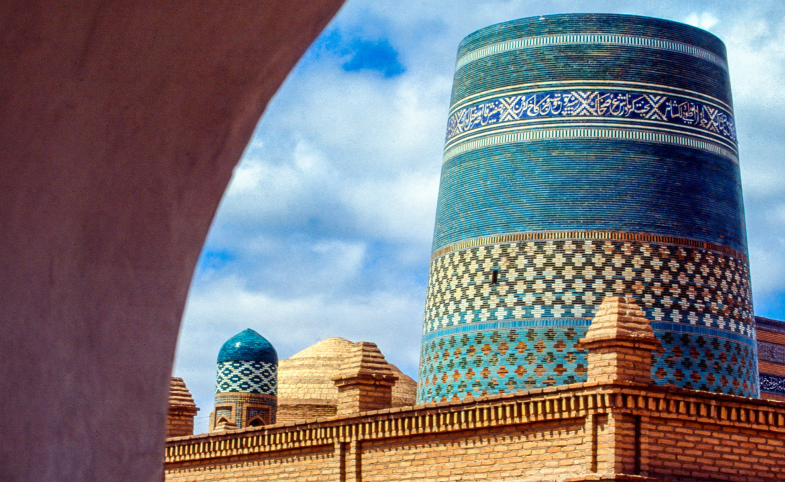Launched in 1948, Fulbright’s Student Program has become a popular initiative for those seeking postgraduate education. Due to an ever-rising number of applications, the U.S., in cooperation with the government of Mongolia,...
KEEP READINGThe CPD Blog is intended to stimulate dialog among scholars and practitioners from around the world in the public diplomacy sphere. The opinions represented here are the authors' own and do not necessarily reflect CPD's views. For blogger guidelines, click here.

Conference Diplomacy in Uzbekistan
This article is the first in a three-part series by Zenia Duell on the fourth World Conference on Creative Economy (WCCE), held in Tashkent, Uzbekistan.
Everything was running two hours late at the fourth World Conference on Creative Economy (WCCE) in Tashkent, Uzbekistan. The Wi-Fi was patchy. There was no coffee to be had. But the air buzzed with a sense of optimism, energy, and creativity, characterising a country preparing to put its best foot forward on the world stage.
The three-day event was taking place in Tashkent’s brand-new conference centre, an impressive, vaulted building with enormous chandeliers lining its vast reception area. Art installations and digital displays populated the main hall, which thronged with an international audience that evoked Uzbekistan’s history as a Silk Road thoroughfare.
When it was first proposed in 2015 by the Indonesian Ministry of Tourism, the WCCE made waves throughout ASEAN and the Global South with its proposal of igniting a new multilateral agenda on the creative economy (Buchoud, Nicolas J.A., WCCE Conference Catalogue 2024, p31). The Conference has been hosted twice by Indonesia and once by the UAE, but the bid by Uzbekistan to host the fourth iteration comes as part of a wider, cross-sector transformation strategy for the Central Asian state.
In 2022, Shavkat Mirziyoyev, who became President of Uzbekistan in 2016, launched the Development Strategy of New Uzbekistan for 2022-2026. The strategy sets out 100 goals across seven priority areas and includes an ambitious new cultural agenda (Umerova, Gayane. WCCE Conference Catalogue 2024, p15).
In her opening speech at the Conference, Gayane Umerova, the Chairperson of the Uzbekistan Arts and Culture Development Foundation, highlighted Uzbekistan’s “prolonged investment in cultural diplomacy” (Umerova, Gayane. WCCE Conference Catalogue 2024, p14.), while goal #95 in the Development Strategy highlights economic diplomacy as a strategic priority.
According to data gathered by the British Council, the number of creative businesses in Uzbekistan rose by 60% between 2016 and 2020. The Development Strategy clearly recognises the enormous potential of the creative industry in both economic and cultural diplomacy, as Uzbekistan looks to consolidate its position and further its reach as a creative hub in Central Asia. And with significant investment across infrastructure (such as the creation of 13 regional IT parks designed to support startups), financial support schemes, and youth engagement (such as the establishment of a Palace of Youth Creativity in Tashkent), the government of Uzbekistan is signalling its commitment to fostering this potential.
As many more Global South countries identify and invest in the potential of their human resources, as well as their natural resources, expect to see a corresponding rise in conference diplomacy.
The energy and atmosphere of the WCCE in Tashkent, set in the context of this coordinated cultural investment, took me back to 2021 and the launch of the Global AI Summit in Riyadh, Saudi Arabia. There, too, time was a flexible commodity, although there was at least an abundance of refreshment options. In Riyadh, as in Tashkent, the summit was representative of a desire to communicate to the world the country’s technological, social, and economic evolution. In 2016, Crown Prince Mohammed bin Salman launched Saudi Vision 2030, a strategic framework that aims to reduce the Kingdom’s dependence on oil under three pillars: economic diversification, cultural investment, and social reform. Saudi Arabia, like Uzbekistan, has a very young population, with median ages of 29 and 28 respectively. The Kingdom also enjoys an internet penetration rate of 98%, which is reflective of the digitally native, youthful society. The purpose of the conference diplomacy of the Global AI Summit, therefore, was to project the potential of this technologically literate Saudi youth onto the world stage, showcasing the skills of those young people who, emboldened by the country’s legal and social reforms, are powering Saudi Arabia’s vision.
Rebeca Grynspan, Secretary-General of UN Trade and Development (UNCTAD), highlighted the creative potential of the Global South in her keynote speech at the WCCE, noting that South-South trade in creative goods made up 25% of global creative goods exports in 2022 (Grynspan, Rebeca. WCCE Conference Catalogue 2024, p26). Conference diplomacy is emerging as a significant promoter and enabler of this creative trade, as exemplified by the grant agreement worth over $4 million signed on the first day of WCCE by the Qatar Development Fund and Uzbekistan’s Arts and Culture Development Fund.
As many more Global South countries identify and invest in the potential of their human resources, as well as their natural resources, expect to see a corresponding rise in conference diplomacy. Increasingly, this will be hosted by Global South conveners for a Global South audience, as these emerging cultural powers jostle for position in a shifting global order.
Visit CPD's Online Library
Explore CPD's vast online database featuring the latest books, articles, speeches and information on international organizations dedicated to public diplomacy.
POPULAR ARTICLES
-
January 29
-
January 20
-
January 28
-
January 2
-
January 8
Join the Conversation
Interested in contributing to the CPD Blog? We welcome your posts. Read our guidelines and find out how you can submit blogs and photo essays >.













